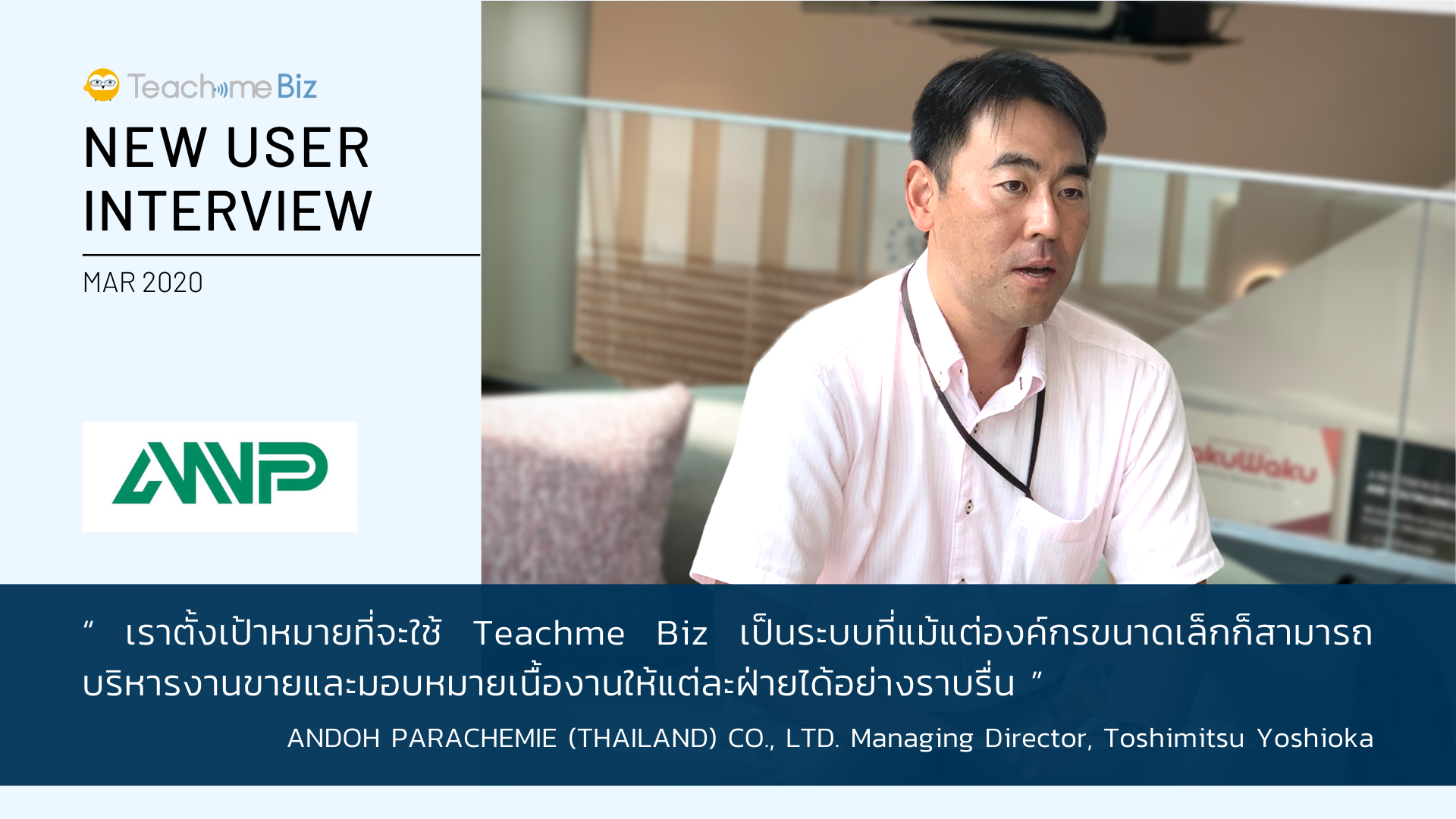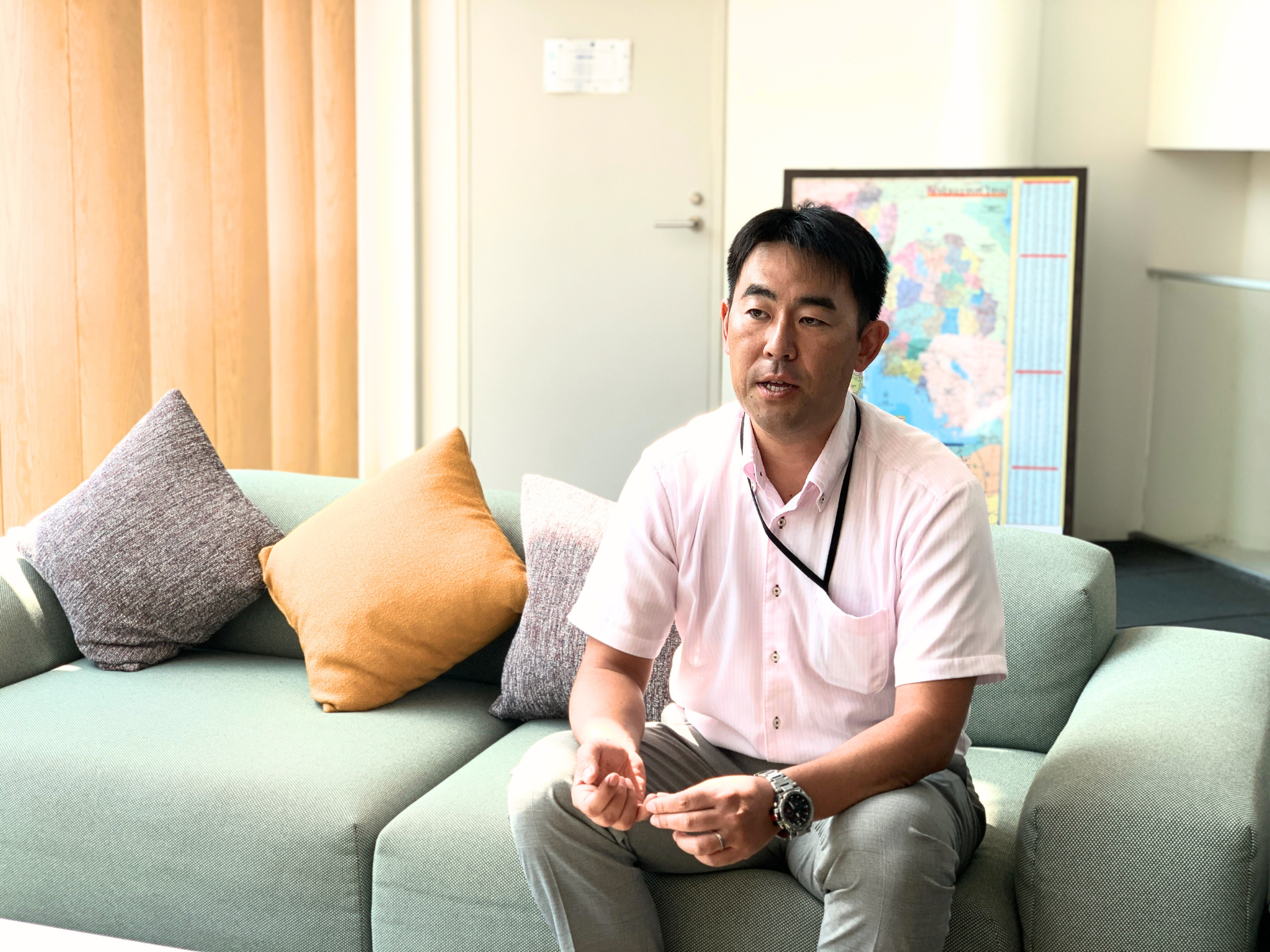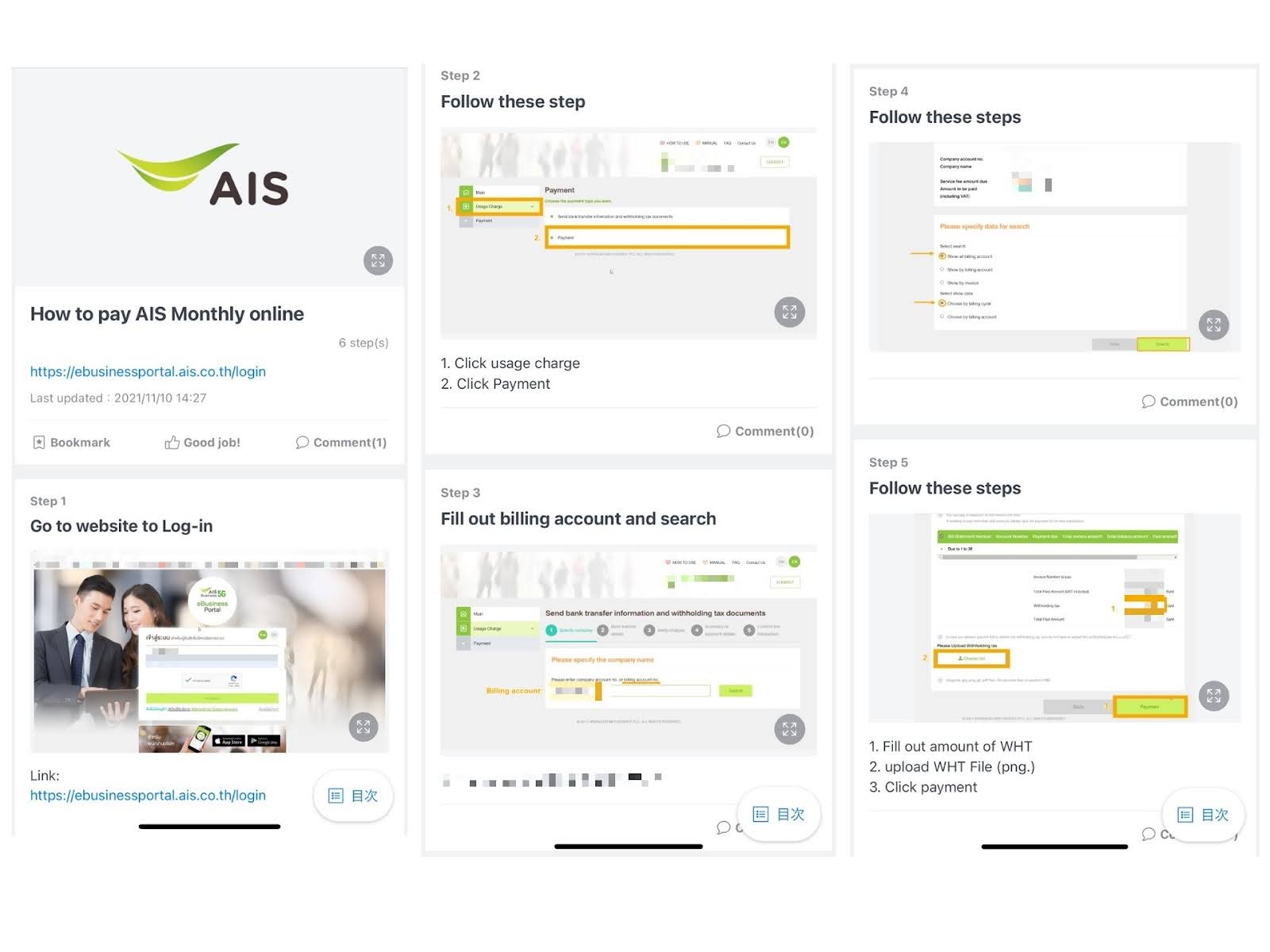
Manual Development as a Critical Tool for Small Team Success
Company |
ANDOH PARACHEMIE (THAILAND) CO., LTD. |
|---|---|
Website |
https://www.anp.co.jp/en/company/offices |
Address |
#10room 2 JASMINE BLDG., 12TH FL., SOI SUKHUMVIT23 (PRASANMITR), SUKHUMVIT ROAD, NORTH KLONGTOEY, WATTANA, BANGKOK 10110 |
Introduction of Manuals Due to Small Team Structur
— Could you tell us about your company’s business overview?
Mr. Yoshioka: We are a specialized trading company dealing in chemical raw materials. We started as a private shop handling sugar and oil in Owari Nagoya during the Bunsei period (1818-1831) and incorporated after World War II.
We expanded to Thailand in 2018. We stock and sell products imported from countries like China, and also act as agents for some Thai manufacturers, purchasing and selling their products.

ANDOH PARACHEMIE (THAILAND) CO., LTD. Managing Director, Toshimitsu Yoshioka
— Please tell us about the background of implementing Teachme Biz, despite having a small team of just three people.
Mr. Yoshioka: It was precisely because we were small that we needed manuals. When we started, we began with the minimum number of people – myself and two Thai staff members – which created unique challenges.
For instance, if we had 4-5 Thai staff members, when one person leaves, we could ask another staff member to take over their duties. However, since we were operating with minimal staff, this wasn’t possible.
Furthermore, even before establishing our Thai corporation, we knew that staff turnover in Thailand was high. Even with a month’s notice of resignation, when you factor in the time needed to find and hire a new staff member, you might only have a few days for actual handover – this was quite common. Additionally, my own limited English proficiency was another reason for implementation. While verbal explanations might be challenging, having manuals allows me to convey work procedures even with basic English. When I first arrived, I was quite anxious, which led me to implement Teachme Biz as a solution.
Streamlining Complex Documentation Procedures Through Manuals
— So the cost reduction in handovers was the deciding factor. How did you find the actual implementation and its effectiveness?
Mr. Yoshioka: The multi-language support was really reassuring. Since I wasn’t particularly fluent in either Thai or English, having pre-made manuals meant that when handovers occurred, I could simply say, “You can understand how to do the job by following this,” making it much easier to teach work procedures.
The visual aspect was also very helpful. Our company deals with chemicals, so we need to submit regular reports to government offices. Teachme Biz’s ability to incorporate images and PDFs made it very convenient to manage documentation workflows – we could attach the necessary forms and clearly show “when this document arrives, do this.”
Gradually Enriching Content While Managing Staff Motivation
— After implementation, how long did it take to develop comprehensive handover manuals?
Mr. Yoshioka: It took about a year. Some tasks only occur a few times a year, or even once every few years. In an organization with high staff turnover, documenting these infrequent tasks was especially crucial. There were many instances where we were grateful for having created these manuals.
— How did you encourage national staff to embrace manual creation?
Mr. Yoshioka: Realizing it would be difficult to simply demand manual creation, I first created several manuals myself and asked them to “create similar manuals for other tasks.” Additionally, whenever new tasks arose, I would remind them to “document this in a manual later,” gradually building up our content.
When staff members created particularly useful manuals on their own initiative, I would praise them with comments like “that’s amazing” or “well done” and treat them to drinks or snacks as a reward.
— So you led by example while managing motivation. What would you consider an exemplary manual?
Mr. Yoshioka: Rather than just being well-organized, it was more about filling gaps in our documentation, especially for those once-in-several-years tasks that we knew would be helpful to have documented later.
From the second year of implementation, we incorporated manual creation volume into bonus evaluations. When staff members created many manuals, I would explicitly increase their bonuses, explaining “this is because you created so many manuals,” which helped motivate other employees as well.

Sample Manual Created by Teachme Biz from ANDOH PARACHEMIE (THAILAND) CO., LTD.
Mental Relief Thanks to Teachme Biz
— What effects did you notice after implementing the system?
Mr. Yoshioka: First, handovers became much smoother. Despite Thailand’s high turnover rate, having manuals made it significantly easier to train new employees.
An unexpected benefit was the improvement in my own mental well-being. While staff resignations can be stressful, having manuals gave me confidence that “we can manage this.” This sense of security was particularly significant in our second and third years.
Additionally, through creating manuals, I was able to better organize our work flows myself. By the third year, I could guide new employees step by step while referring to the manuals.
— That’s impressive. It seems you’ve achieved significant results with an implementation approach unique to small organizations. Lastly, do you have any advice for companies considering implementing Teachme Biz?
Mr. Yoshioka: While manual tools might be perceived as being for large organizations, I believe they can be even more effective in small teams. Beyond improving handover efficiency, they serve as communication tools that transcend language barriers. Although creating manuals is steady work, it’s crucial from a long-term perspective. It’s especially valuable during unstable periods, such as when establishing overseas operations. I encourage companies to find ways to utilize the system that best suits their specific situations


